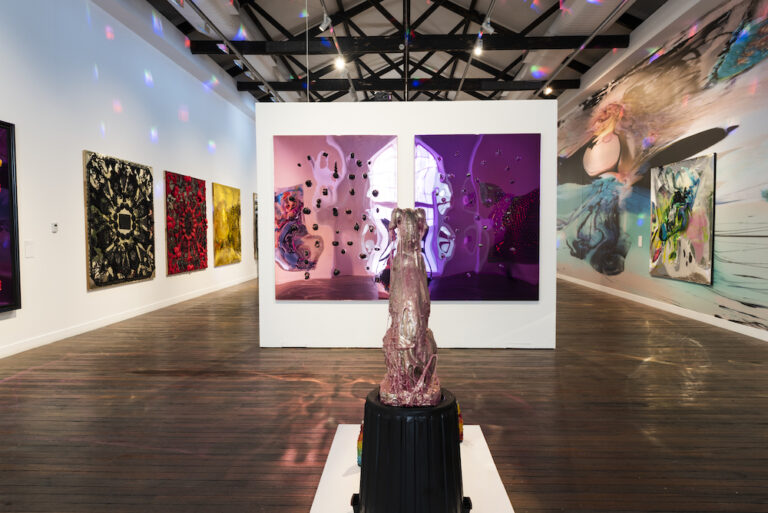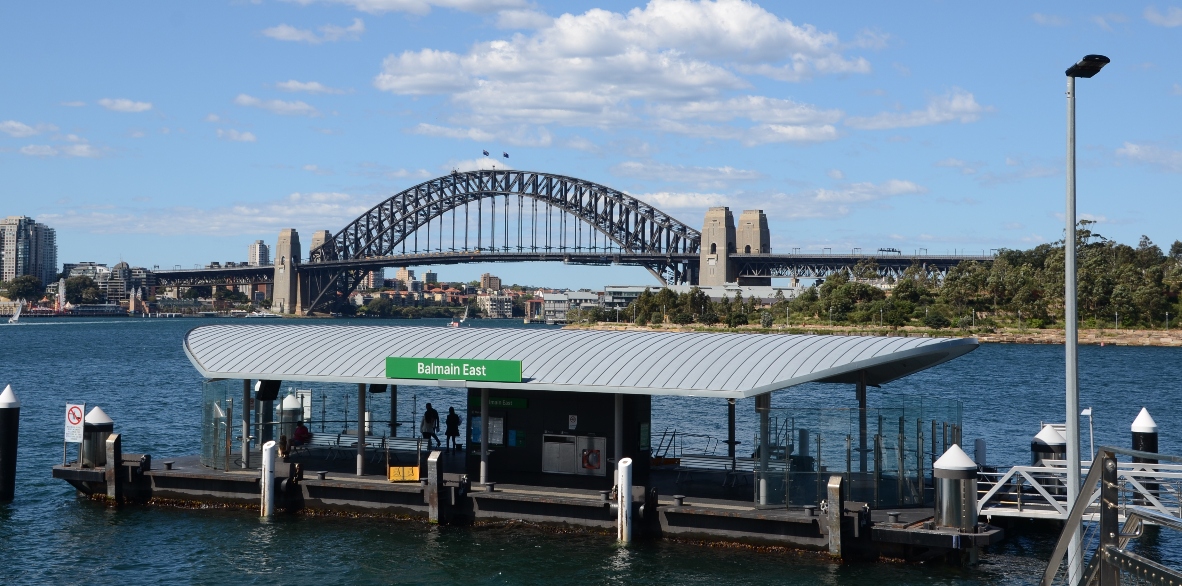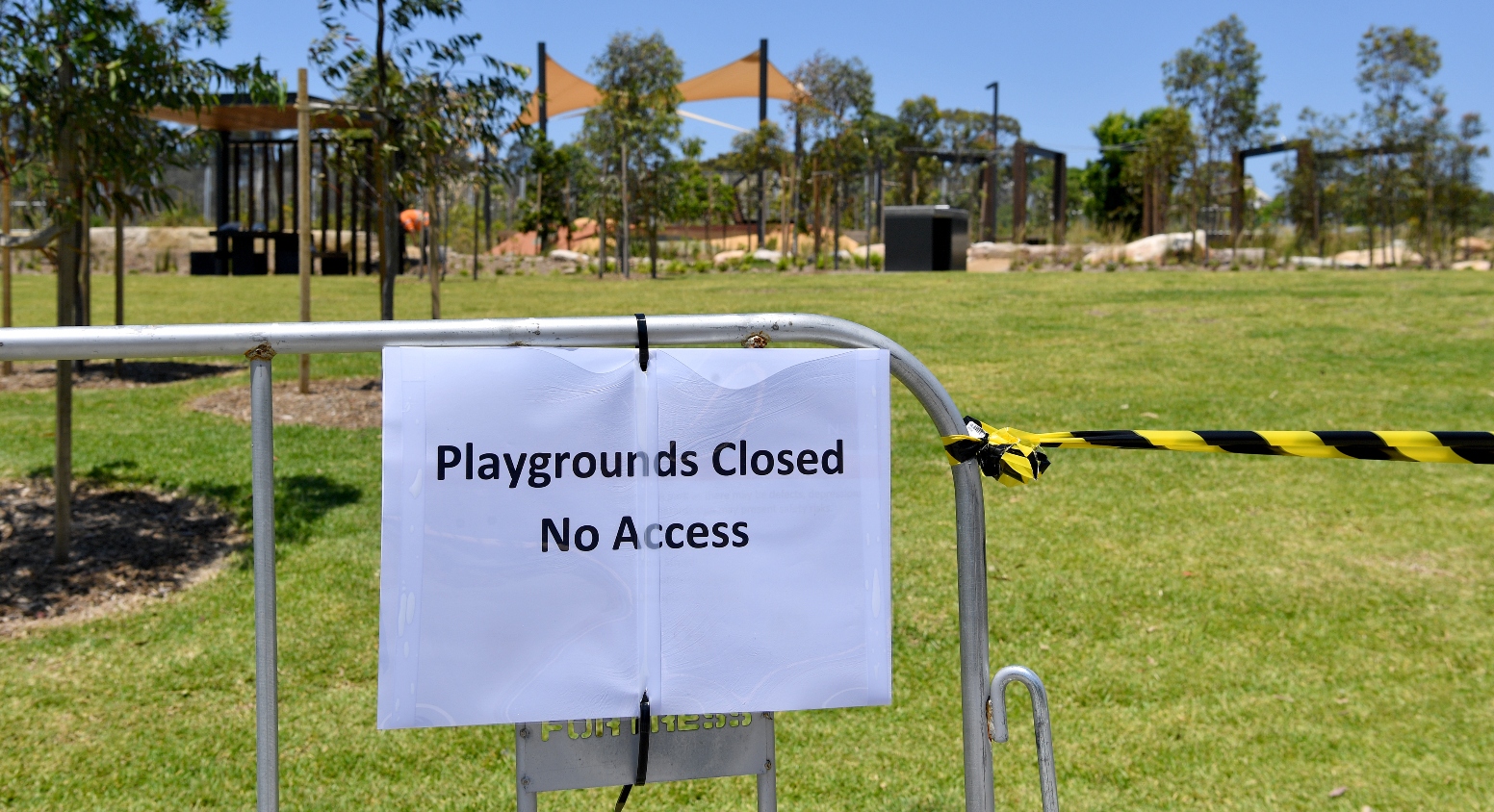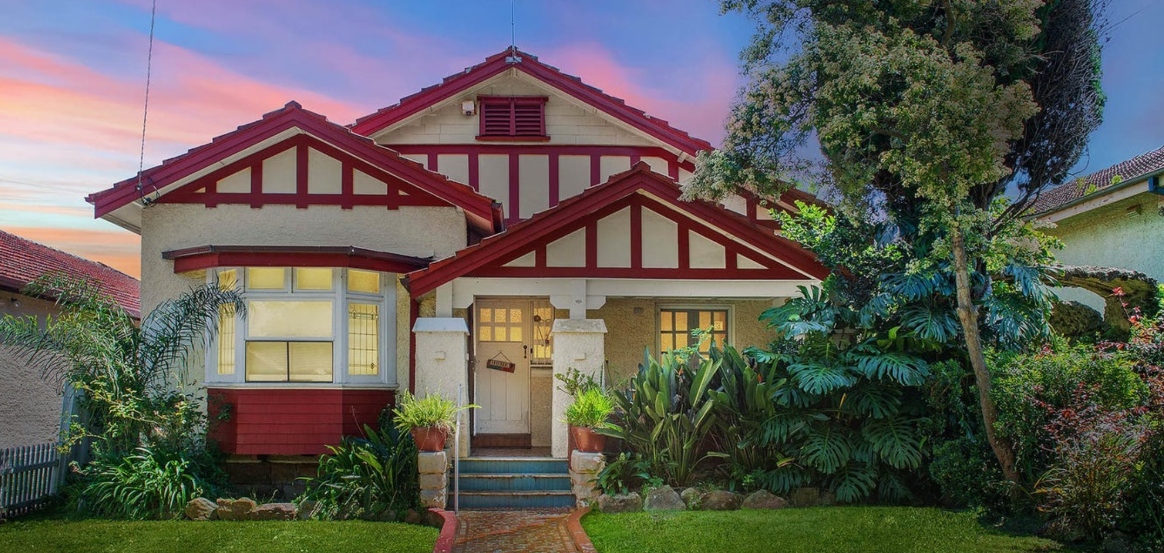
Putting Enmore’s last BNB to bed

By Lanie Tindale
When guests venture through the gold gate and path leading to TARA Guest House, they are greeted at the front door by Oscar the border collie, who clambers at the window, eager for pats and cuddles from his new friend.
Lately there haven’t been many visitors to Enmore’s last bed and breakfast. Suites are still available to rent, even as interested buyers are invited to roam the Italian-style terrace, inspecting its high ceilings and wooden floors.
The ex-boarding house has been operating as a boutique bed and breakfast by Julian Rapley and Susan “Brom” Bromley since 2009. What started as a way to supplement a furniture showroom grew into a successful business borne out of a passion for people and hospitality.
The guesthouse quickly grew an international reputation, being recommended by Lonely Planet Guides, the UK Guardian and the Louis Vuitton Sydney Guide. The establishment had an 85 per cent occupancy rate until 2012, when the sharing economy took off.
“Over a period about two years, our occupancy went from 85 per cent annually, which is really, really good, down to about 45, 50 per cent,” said Brom Bromley.
With backgrounds in interior architecture and fashion, a passion for overseas travel and taste for the eclectic, Brom and Julian have adorned their guesthouse with care.
Pink roses in teapots sit on tables, pine cones are arranged in marble fireplaces, bookshelves are lined with classic novels, collections of film-reel tapes rest on shelves and cow skin rugs lay in sitting rooms.
But it’s the unassuming long wooden table that the couple will miss the most.
Each morning Julian and former cook Brom rise at 6am to prepare a late breakfast for their guests. Fresh figs with honey, dim sims, crepes, homemade granola, bruschetta, rhubarb, hollandaise eggs, Asian-style nanata and freshly squeezed orange juice are some of the delicacies that may be on offer.
But it isn’t just the food that makes the dining room table special.
“It’s a beautiful shared table. Lots of information goes backwards and forwards.”
There is one particular memory that makes Brom emotional.
A Japanese and Chinese group were visiting the guesthouse at the same time.
“They all arrived on the same day, left on the same day, so they sat here every morning. There was lots of conversation going on, lots of interpreting, lots of laughter.”
One the day that both groups were leaving, a Japanese woman called Yuki approached the Chinese group and “did this really formal bow and she said on behalf of myself and my husband and my friend and all Japanese people, we would, I still get emotional. We would like to sincerely apologise for the invasion of China and the rape of Nanjing.”
“That’s a diplomatic incident, a moment that’s really so profound.”
Brom asked one of the Chinese guests how she felt when Yuki said this.
“And she said, my heart shifted. I mean, that is the most profound thing, but it was through just people sitting at the table.”
The couple have made lifelong connections.
One German guest first stayed at TARA seven years ago. “He’s been back about three times so far. And he married last year. We met his then girlfriend, now wife. They’ve had a little boy and they called him Julian.”
Despite winning an award from TripAdvisor for excellence and receiving glowing reviews, the couple have decided to close their doors.
Brom and Julian listed TARA on Airbnb but couldn’t compete with the low prices of other units and houses that do not abide by council regulations, or provide services such as changing linen daily, airport transfers, personalised area maps and brunch.
Although TARA accepts short-term tenants who are primarily tourists, it is classified as a boarding house, and is subject to the Boarding Houses Act 2012. Boarding houses must be publicly registered and abide by regulations set by local councils.
Bed and breakfasts’ must adhere to regulations that address fire and food safety, premise occupancy numbers and disability access.
These same regulations do not apply to short-term booking platforms, which Trish Burt – the convener of Neighbours not Strangers advocacy group – says is: “the likes of expedia, booking.com etcetera, AirBnb of course, Stayz, Home Away. You’d normally stay per night …”
Recent regulations proposed by Minister Matt McKean limit people from letting out properties for less than 180 days if that is not their primary residence. Brom does not think they go far enough.
“I think they should have made it no more than 90 days rather than 180 … That’s not going to stop people. They’ll just go, oh yeah, well I’ll rent it out for two thirds of the year and then just leave it vacant for the other third of the year.”
John Gilmovich, the president of Property Owners Association of NSW, says that the proposed regulations will also increase rental prices.
“You don’t have to be an economist to see that limiting the occupancy rates of properties … will ultimately lead to more empty properties and escalating rents.”
CEO of NSW Tourism Accommodation, Carol Giuseppi, says that the regulations are “certainly a step in the right direction” but “the only way that government is going to have visibility of who’s doing what is if they have a public register” such is required for boarding houses.
The convenor of Play Fair Airbnb, who requested anonymity, said that “bed and breakfast owners … not only pay land tax, they pay higher domestic local rates, they pay commercial water rates, and obviously if they earn over 75 thousand they pay GST on all the earnings of the business.”
She said that if someone is “engaging in short term holiday letting … then they should comply by the same conditions as a bed and breakfast does.”
A spokesperson for Airbnb said: “Hospitality is a large, growing market and there’s room for everyone.”
“We are supporting a range of hospitality entrepreneurs from someone sharing their own home through to a family-run boutique B&B.
“In recent years, we’ve seen small, independent providers join Airbnb organically. We see many traditional B&Bs and guesthouses offer local, authentic and unique hospitality that fits with our mission of belonging — and we are making it easier for them to be a part of our community.”









